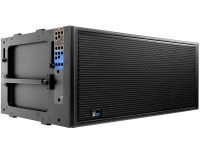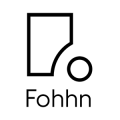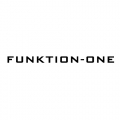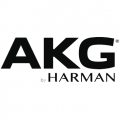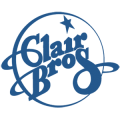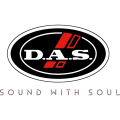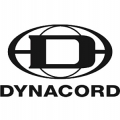LEO‑M : Advanced Linear Array Loudspeaker
Sonic linearity at any output level defines the LEO‑M advanced linear array loudspeaker. Conceived for long-throw applications, with exceptional headroom, extremely low distortion, and optimized rigging options, LEO‑M forms the nucleus of Meyer Sound’s next‑generation LEO array systems. Pair LEO arrays with Meyer Sound’s 1100‑LFC low-frequency control element for bass reproduction, and the LYON linear line array loudspeaker for downfill. Drive entire systems with Meyer Sound’s Galileo GALAXY Network Platform, which provides 24 bit, 96 kHz audio, matrix routing, alignment, and processing for array components.
To guarantee optimum system performance, design LEO array systems with Meyer Sound’s MAPP System Design Tool. This intuitive, cross-platform application accurately predicts coverage patterns, frequency and impulse responses, and linear peak SPL for LEO array systems, ensuring that systems deliver the required SPL and ideal coverage for the intended audience areas.
LEO‑M’s high-frequency section comprises two proprietary compression drivers coupled to a constant-directivity horn through a patented REM manifold. The manifold’s smooth radiating characteristics afford tight vertical coverage. The low‑frequency section includes two long-excursion cone drivers, also proprietary, capable of withstanding high continuous output levels. Precise phase and magnitude alignment between low‑ and high-frequency drivers yields consistent and well‑behaved system responses.
The unit’s power amplifier operates at nominal voltages from 208—235 V AC at 50—60 Hz. TruPower limiting ensures maximum driver protection, minimizing power compression while yielding high constant output under high continuous and peak power conditions. A single field-replaceable module located on the rear of the cabinet contains the amplifier, control electronics, and power supply.
Meyer Sound’s RMS remote monitoring system comes standard with all LEO‑M loudspeakers and provides comprehensive monitoring of system parameters on a Mac or Windows-based computer. Convenient XLR 5-pin connectors allow the use of composite cables carrying both RMS and balanced audio.
LEO‑M offers intuitive rigging with captive GuideALinks that users can set to the desired splay angles while cabinets rest in caster frames. The MTG‑LEO‑M top grid flies arrays of up to 22 LEO‑Ms at a 5:1 safety factor (with some restrictions). Fly LYONs below LEO‑M arrays for downfill with available optional transition frames. Securely transport stacks of up to four LEO‑Ms with the optional MCF‑LEO‑M caster frame; Protect the cabinets during transport with optional durable nylon covers that accommodate stacks of two, three, or four units.
Meyer Sound builds the vented LEO‑M cabinet with premium multi‑ply birch and coats it with a slightly textured black finish. A powder-coated, hex‑stamped steel grille with acoustical black mesh protects the unit’s drivers. The weather-protected cabinet and included collapsible rain hood that shields user panel connectors from water intrusion accommodate a variety of applications.
Features
- Optimized line arrays with controlled directivity for even coverage and consistent responses over long throws
- High peak power output with exceptional linearity and transient reproduction at extreme levels
- Self-powered design for simplified setup and increased reliability
- Optimized rigging that allows splay angles to be set while stacks rest in caster frames
- Seamless integration with LYON line array loudspeakers, and the 1100-LFC and VLFC low frequency control elements
Applications
- Stadiums
- Arenas
- Touring sound reinforcement
- Large-scale public events
1100-LFC : Low-Frequency Control Element
The 1100‑LFC low-frequency control element is a self-powered loudspeaker defined by its sonic linearity in reproducing lowfrequency transients at high continuous output levels with very low distortion. This ultra-low distortion, coupled with exceptional headroom and optimized rigging options, makes the 1100‑LFC a flexible tool for low-end directional applications for large-scale tours and installations.To guarantee optimum performance, design 1100‑LFC systems with Meyer Sound’s MAPP system design tool. This intuitive, cross-platform application accurately predicts directional patterns, frequency and impulse responses, and linear peak SPL for 1100‑LFC systems, ensuring that systems deliver the required coverage and SPL.
An optimally tuned, vented cabinet houses the 1100‑LFC’s two 18-inch, long-excursion cone drivers. The loudspeaker’s 28 Hz to 100 Hz operating frequency range complements LEO, LEOPARD, LYON, JM‑1P, and other Meyer Sound loudspeakers, allowing it to integrate seamlessly with line arrays and curvilinear arrays.
The unit’s power amplifier operates at voltages from 208 to 235 V AC, at 50/60 Hz. TruPower limiting ensures maximum driver protection, minimizing power compression while yielding high constant output under high continuous and peak power conditions. A single, field-replaceable module located on the rear of the cabinet contains the amplifier, control electronics, and power supply.
The 1100-LFC cabinet includes protective plastic skids on the bottom that securely align with the cabinet’s top slots. Units are stackable normally or reversed for cardioid configurations. Meyer Sound tunes and vents the cabinet to specifically optimize it for low air velocities.
The optional MRK‑1100 rigging kit, available as a factory-installed option or field upgrade, includes captive GuideALinks that allow the loudspeaker to be flown from the MTG‑1100 top grid. Convenient pinned handles and slots make the GuideALinks, located at the front and rear of the cabinet, easy to set. The GuideALinks also accommodate reversed units for flown cardioid arrays.
Suspend line arrays comprising up to 16 cabinets at a 5:1 safety factor and BGC V1 from the optional MTG‑1100 top grid. For touring and portable systems, the optional MCF‑1100 caster frame accommodates three-cabinet stacking of the 1100-LFC for secure travel. Optionally available durable nylon covers, accommodating stacks of two or three 1100-LFCs, ensure complete road-readiness.
Meyer Sound’s RMS remote monitoring system comes standard with all 1100‑LFCs and provides comprehensive monitoring of system parameters from a host computer running Compass control software via the RMS interface. Convenient 5-pin XLR connectors allow the use of composite cables carrying both balanced audio and RMS signals (3-pin XLR audio connectors are optionally available).
Meyer Sound constructs the 1100‑LFC cabinet with premium multi‑ply birch and coats it with a slightly textured black finish. A powder-coated, hex‑stamped steel grille with acoustical black mesh protects the unit’s drivers. Other options include weather protection and custom color finishes for fixed installations and applications with specific cosmetic requirements.
Features
- High peak power output with low-frequency clarity and excellent transient reproduction at extreme levels
- Linearity ensures low-frequency output with consistent directional properties in a variety of configurations at any level
- Tuned, vented cabinet optimized for low air velocities
- Stackable and flyable in regular and cardioid arrays
- Seamlessly integrates with LEO, LYON, LEOPARD, and other Meyer Sound loudspeakers
Applications
- Stadiums
- Arenas
- Concert halls
- High-power, controlled-directivity arrays
Professional used lighting equipment.| Professional second hand lighting equipment.| Professional pre owned lighting equipment.
Professional used audio equipment.| Professional second hand audio equipment.| Professional pre owned audio equipment.
Second hand audio gear. | Second hand lighting.
Pro audio equipment, second hand amplifiers, DJ, second hand sound systems, second hand Microphones, second hand Media Players.
Outdoor & Indoor LED screens for sale, LED mobile truck.
Light trussing, Gebrauchte Veranstaltungstechnik, used stage equipment Stage & Theatre lighting products.
Used Meyer Sound Laboratories
Meyer Sound Laboratories is an American company based in Berkeley, California that manufactures self-powered loudspeakers, multichannel audio show control systems, electroacoustic architecture, and audio analysis tools for the professional sound reinforcement, fixed installation, and sound recording industries.
The company’s emphasis on research and measurement has resulted in the issuance of dozens of patents, including for the now-standard trapezoidal loudspeaker cabinet shape. Meyer Sound has pioneered other technologies that have become standard in the audio industry, including: processor-controlled loudspeaker systems, self-powered loudspeakers,curvilinear arraying, cardioid subwoofers, and source independent measurement.
Meyer Sound has consistently involved itself with advanced research beyond that connected to immediate product development, sometimes in conjunction with arms of the University of California, Berkeley. Some of this research has resulted in unusual products such as their parabolic sound beam and sound field synthesis loudspeakers. Other projects, such as the spherical loudspeaker research underway by Meyer Sound and CNMAT (Center for New Music and Audio Technologies) at UC Berkeley are still in the stage of pure research.
Professional used lighting equipment.| Professional second hand lighting equipment.| Professional pre owned lighting equipment.
Professional used audio equipment.| Professional second hand audio equipment.| Professional pre owned audio equipment.
Second hand audio gear. | Second hand lighting.
Pro audio equipment, second hand amplifiers, DJ, second hand sound systems, second hand Microphones, second hand Media Players.
Outdoor & Indoor LED screens for sale, LED mobile truck.
Light trussing, Gebrauchte Veranstaltungstechnik, used stage equipment Stage & Theatre lighting products.
Efficiency Rating: Level of sound output measured at a prescribed distance with a standard input power. Efficiency rating standard is 1 watt (2.83V at 8 ohms) at 1 meter over a specified frequency range and is measured in decibels.
Equalization: Loosely, any type of relative frequency adjustment. Specifically, the process of changing the frequency balance of an electrical signal to alter the acoustical output.
Equalizer: A component designed to alter the frequency balance of an audio signal. Equalizers may be graphic, parametric, or a combination of both.
Fade: A gradual increase in audio, i.e. a fade-up, or a gradual decrease in audio, i.e. a fade-down.
Feedback: The transmission of current or voltage from the output of a device back to the input, where it interacts with the input signal to modify operation of the device. Feedback is positive when it’s in phase with the input and negative when it’s out of phase.
FM: Frequency Modulated.
Frequency: The number of cycles (vibrations) per second. In audio, audible frequencies commonly range from 20 to 20,000 cycles per second (Hz). In video, frequency is used to define the image resolution. Low-frequency video images depict large objects or images. Higher frequencies depict smaller objects (finer details.
Frequency Response: A measure of what frequencies can be reproduced and how accurately they are reproduced. A measurement of 20 to 20,000 Hz, 3dB means those frequencies between 20 and 20,000 Hz can be reproduced no more than 3 dB above or below a reference frequency level.
Full-Range: A speaker designed to reproduce the full range (20 Hz to 20 kHz) of audio frequencies.
Gain: Increase in level or amplitude.
Gooseneck: This refers to a microphone with a flexible neck that is most frequently attached to a podium or lectern. It is designed to allow the speaker to raise or lower the microphone to a suitable height.
Graphic Equalizer: A type of equalizer with sliding controls that creates a pattern representing a graph of the frequency-response changes. Raising sliders boosts the affected frequencies lowering sliders cuts (attenuates) the affected frequencies.
HDCP: High-Bandwidth Digital Content Protection. Created by Intel, HDCP is used with HDTV signals over DVI and HDMI connections and on D-Theater D-VHS recordings to prevent unauthorized duplication of copyright material.
HDR: Hard-Drive Recorder. Device that uses a computer hard drive to store compressed digital audio and video signals.
High Pass: A filter that passes high frequencies, and attenuates low frequencies. Same as low cut.
Hz: Hertz or cycles per second. Something that repeats a cycle once each second moves at a rate of 1 Hz.
Incue/Inq/In-Point: These words all refer to the initial few seconds of audio signifying the beginning of the production.
Integrated Amplifier: A combination preamp and amplifier.
Impedance: A measure of the impediment to the flow of alternating current, measured in ohms at a given frequency. Larger numbers mean higher resistance to current flow.
KHz: Kilohertz or one thousand Hz.
Lavaliere: A small microphone that attaches to clothing, allowing the speaker to have a hands-free presentation.
Line Array: A group of speakers that have been arrayed or "built up" in the vertical or horizontal plane, which allow for a highly consistent sound field. A Line Array is perfect for medium to large audiences.
Line-Level (Low-Level): A level of electrical signals too low to make the average speaker move sufficiently. Amplifiers receive line-level signals and amplify them to speaker level.
lockout: The final words of a segment used to signify the production’s conclusion.
Low Pass: A filter that lets low frequencies go through but doesn’t let high frequencies go through. Same as high cut.
MHz: Megahertz, or 1 million Hz.
Midbass: The middle of the bass part of the frequency range, from approximately 50 to 100 Hz (upper bass would be from 100 to 200 Hz). Also used as a term for loudspeaker drivers designed to reproduce both bass and midrange frequencies.
Midrange: The middle of the audio frequency range. Also used as a term for loudspeaker drivers designed to reproduce this range.
Mixer: This is the unit in which audio signals are directed from. A mixer provides for both mic and line input combinations while allowing you to control one or more outputs.
MLP: Meridian Lossless Packing. Encoding format that is able to completely reconstruct the original signal at the receiving end. No information is lost or discarded, regardless of how trivial it might be. Used to encode six channels of high-resolution audio on DVD-A.
Mono: Monophonic sound. One channel.
MP3: MPEG-1 Audio Layer-3. Compression scheme used to transfer audio files via the Internet and store in portable players and digital audio servers.
Natural Sound (NATS): The nonverbal audio that occurs in a non-studio setting. NATS can be used to help characterize the setting.
Noise: An unwanted portion of a signal such as hiss, hum, whine, static, or buzzing.
Nonlinear Editing: Digital audio systems that allow for clips to be extracted without affecting the master recording.
Professional used lighting equipment.| Professional second hand lighting equipment.| Professional pre owned lighting equipment.
Professional used audio equipment.| Professional second hand audio equipment.| Professional pre owned audio equipment.
Second hand audio gear. | Second hand lighting.
Pro audio equipment, second hand amplifiers, DJ, second hand sound systems, second hand Microphones, second hand Media Players.
Outdoor & Indoor LED screens for sale, LED mobile truck.
Light trussing, Gebrauchte Veranstaltungstechnik, used stage equipment Stage & Theatre lighting products.

















